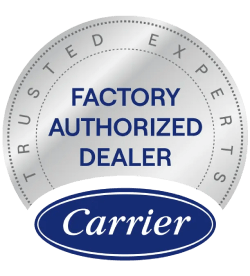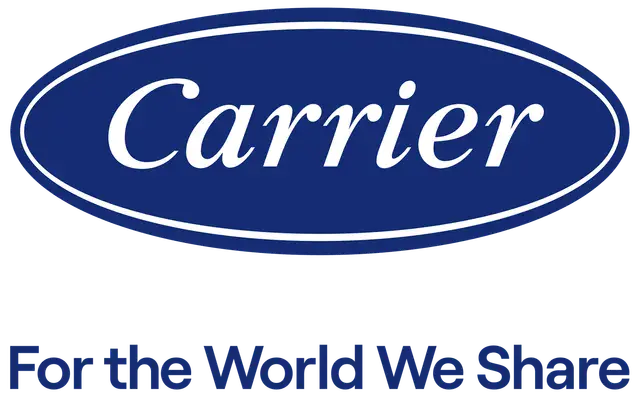Understanding Light Commercial HVAC Systems in Homewood, AL
Light commercial HVAC systems serve as the backbone of comfort and productivity for small to medium-sized businesses throughout Homewood. These systems differ significantly from residential units in their capacity, complexity, and operational demands. When we install and service light commercial HVAC equipment, we’re working with systems designed to handle spaces ranging from 5,000 to 25,000 square feet, including retail stores, small office buildings, restaurants, medical clinics, and professional service establishments.
The unique climate challenges in Homewood demand HVAC systems that can handle both the intense summer heat and humidity as well as the occasional cold snaps during winter months. Light commercial systems typically feature rooftop units (RTUs) or split systems with capacities between 5 and 25 tons, incorporating advanced controls that allow for zone management and energy optimization. These systems must maintain consistent temperatures across larger spaces while dealing with varying occupancy levels, heat loads from equipment, and the constant opening and closing of doors in retail environments.
Components and Technical Specifications
Modern light commercial HVAC systems incorporate sophisticated components that go beyond simple heating and cooling. At Stegall, we work with packaged rooftop units that combine all necessary elements in a single cabinet, including compressors, condensers, evaporator coils, and air handlers. These units often feature economizers that utilize outside air for free cooling when conditions permit, potentially reducing energy consumption by up to 30% during mild weather conditions.
The electrical requirements for light commercial systems typically involve three-phase power configurations, with voltage requirements ranging from 208V to 480V depending on the unit size and application. Our electrical repair and installation expertise becomes crucial when upgrading or replacing these systems, as proper electrical infrastructure ensures reliable operation and prevents costly downtime. Variable frequency drives (VFDs) are increasingly common in these installations, allowing motors to adjust their speed based on demand rather than cycling on and off, which improves efficiency and extends equipment life.
Energy Efficiency and Operating Costs
Energy efficiency represents a critical consideration for Homewood businesses operating light commercial HVAC systems. Current ENERGY STAR requirements mandate minimum SEER ratings of 15.0 for air conditioners and heat pumps under 65,000 BTU/h, but we often recommend systems with SEER ratings of 16 or higher to maximize long-term savings. The initial investment in higher-efficiency equipment typically pays for itself through reduced operating costs within three to five years.
Operating costs for light commercial HVAC systems depend on multiple factors including building insulation, occupancy patterns, and maintenance practices. A properly sized and maintained 10-ton rooftop unit serving a 8,000 square foot retail space in Homewood might consume between 8,000 and 12,000 kWh per month during peak summer conditions. Regular AC service and maintenance can reduce these consumption levels by 15-20% while extending equipment life and preventing unexpected failures that disrupt business operations.
Installation Considerations and Best Practices
Professional HVAC installation for light commercial applications requires careful planning and execution to ensure optimal performance and longevity. We begin every project with a comprehensive load calculation that considers factors such as building orientation, window placement, insulation levels, occupancy patterns, and heat-generating equipment. This analysis determines the appropriate system size and configuration, preventing the common problems associated with oversized or undersized equipment.
During air conditioning installation, proper ductwork design and installation prove just as important as selecting the right equipment. Commercial ductwork must accommodate higher airflow volumes while maintaining appropriate static pressure levels. We design duct systems that minimize pressure drops, reduce noise transmission, and ensure even air distribution throughout the space. Sheet metal ductwork with proper insulation and sealing prevents energy losses and maintains indoor air quality standards required for commercial spaces.
Maintenance Requirements and Service Schedules
Light commercial HVAC systems require more frequent and comprehensive maintenance than residential units due to their extended operating hours and higher demands. We recommend quarterly maintenance visits for most Homewood businesses, with monthly filter changes during peak seasons. Our 24 hours a day, 7 days a week availability ensures that emergency AC repair needs never disrupt business operations for extended periods.
- Quarterly maintenance tasks include comprehensive system inspections, coil cleaning, belt tension adjustments, and refrigerant level checks
- Semi-annual services involve electrical connection tightening, control calibration, and drain line cleaning to prevent water damage
- Annual maintenance encompasses combustion analysis for heating systems, complete electrical system testing, and ventilation rate verification
Common Issues and Troubleshooting
Light commercial HVAC systems in Homewood face specific challenges that require prompt attention to prevent business disruptions. Refrigerant leaks represent one of the most common issues, often caused by vibration-induced wear on copper lines or corrosion from environmental factors. These leaks not only reduce cooling capacity but also increase operating costs and environmental impact. Our technicians use advanced leak detection equipment to identify and repair even the smallest leaks before they escalate into major problems.
Electrical issues frequently plague light commercial systems, particularly in older Homewood buildings where electrical infrastructure may not adequately support modern HVAC demands. Symptoms include frequent breaker trips, compressor failures, and control malfunctions. Our combined HVAC and electrical repair capabilities allow us to address both the symptom and the underlying electrical cause, ensuring comprehensive solutions that prevent recurring problems.
Integration with Building Management Systems
Modern light commercial HVAC systems increasingly integrate with building management systems (BMS) that provide centralized control and monitoring capabilities. These systems allow business owners to track energy consumption, adjust temperatures remotely, and receive alerts about maintenance needs or system failures. We install and configure BMS interfaces that work with existing HVAC equipment, enabling features such as occupancy-based temperature control, demand response participation, and detailed energy reporting.
The integration process involves installing sensors throughout the building to monitor temperature, humidity, CO2 levels, and occupancy. These sensors communicate with the HVAC controls to optimize comfort while minimizing energy consumption. For instance, a restaurant in Homewood might program their system to pre-cool dining areas before the lunch rush while reducing cooling in the kitchen during off-peak hours, potentially saving 20-30% on cooling costs without sacrificing comfort.
Future Trends and Emerging Technologies
The light commercial HVAC industry continues evolving with new technologies that promise improved efficiency and performance. Variable refrigerant flow (VRF) systems are gaining popularity in Homewood’s light commercial sector, offering precise temperature control for individual zones while maintaining high efficiency across varying load conditions. These systems can simultaneously heat and cool different areas of a building, making them ideal for mixed-use spaces or buildings with varying solar exposure.
As we provide commercial, industrial and residential HVAC, plumbing, and electrical support services, we stay current with emerging technologies such as smart thermostats with learning capabilities, advanced filtration systems that address indoor air quality concerns, and heat recovery ventilators that capture energy from exhaust air. These innovations help Homewood businesses reduce operating costs while maintaining comfortable, healthy indoor environments that enhance employee productivity and customer satisfaction. Contact us today.


